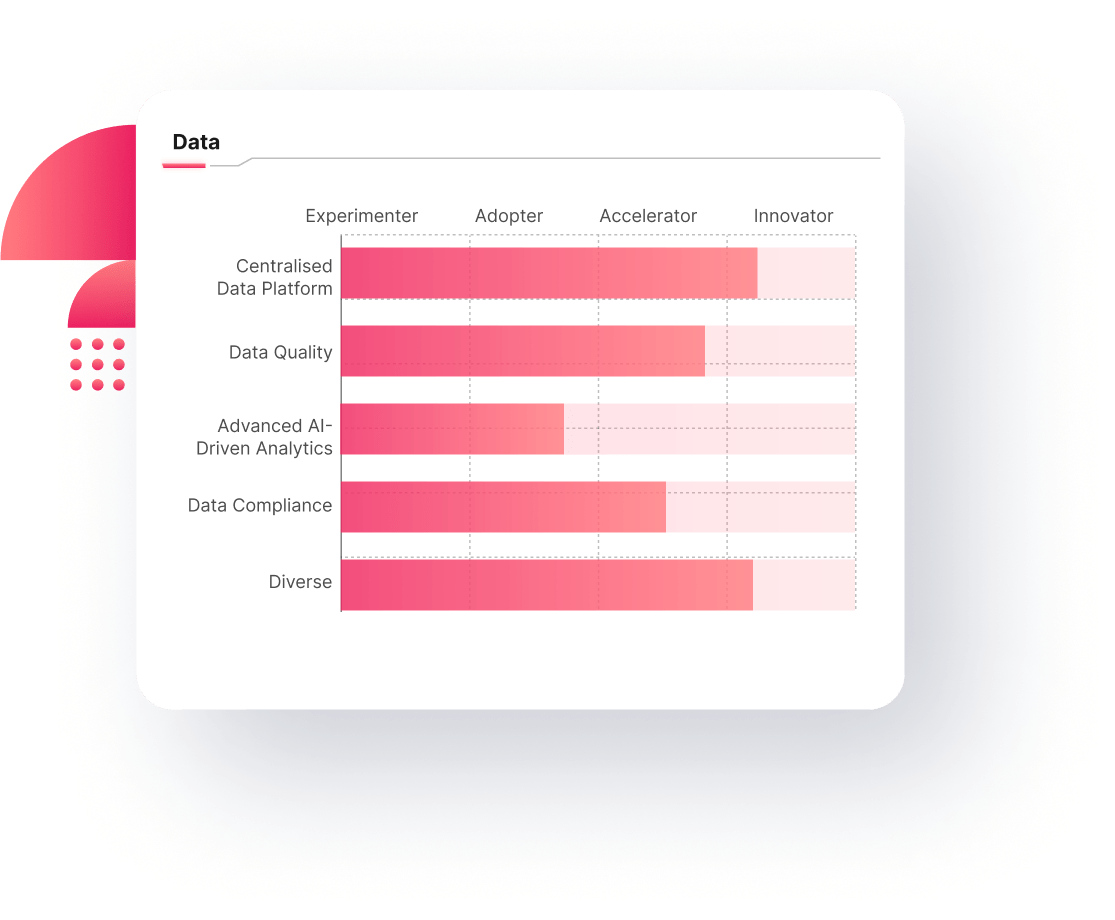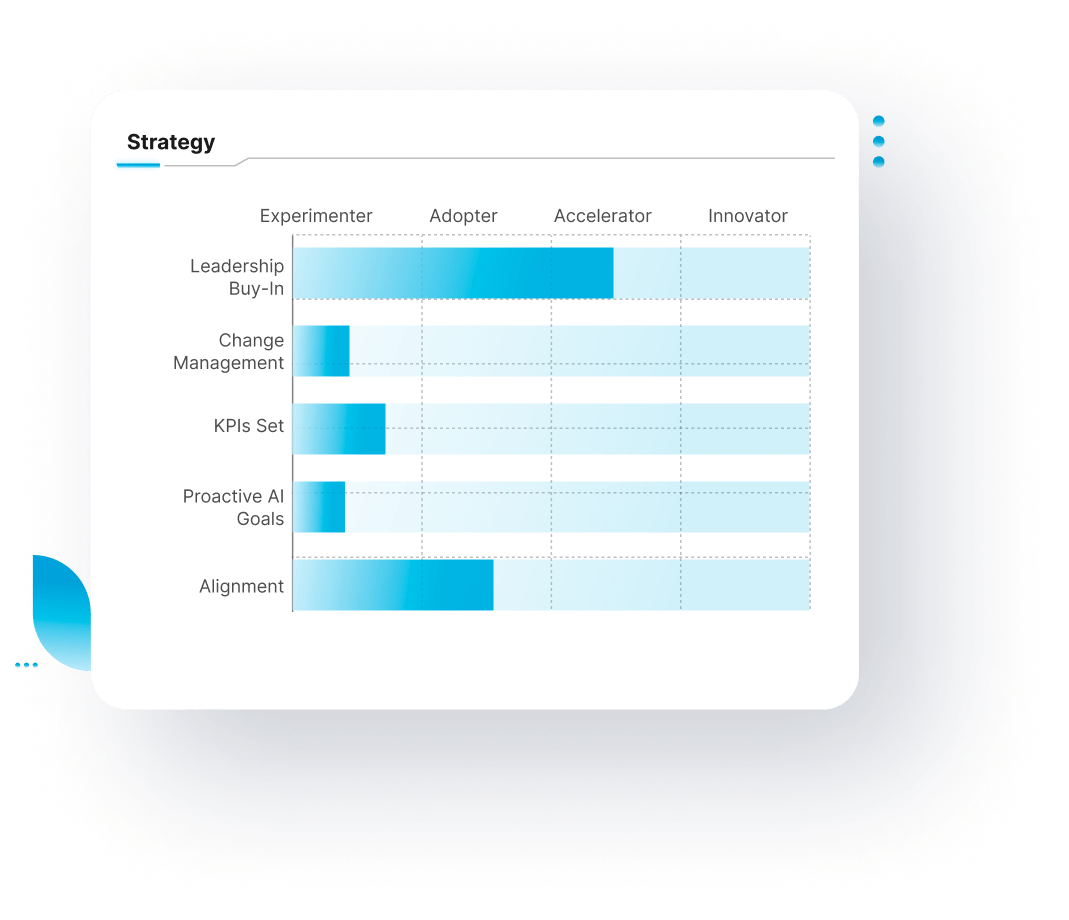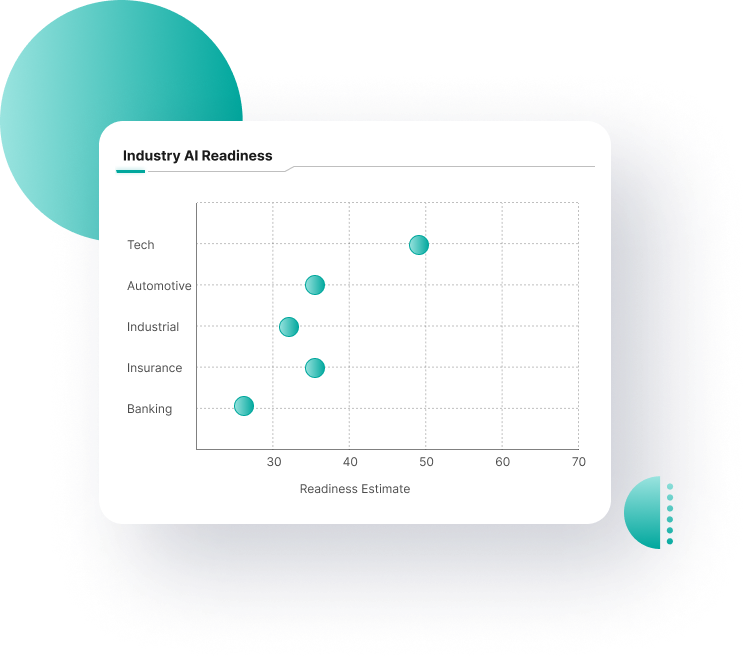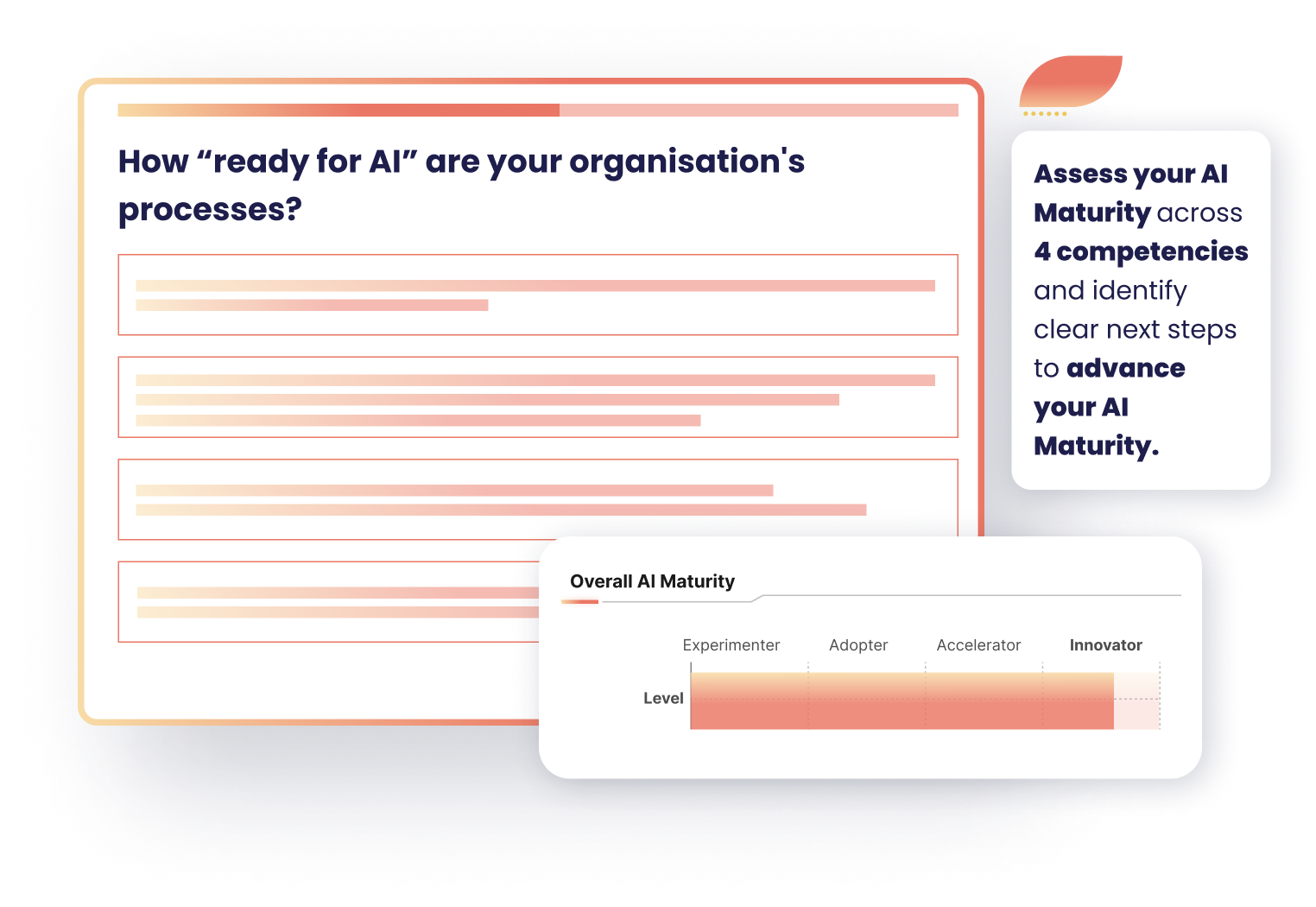Achieving AI Maturity in Your Go-To-Market Strategy.
Uncover the potential Impact of AI
Businesses integrating AI in their GTM strategies are at the forefront of operational excellence and strategic growth.
68% of leaders see real returns on AI investments. Yet, most are just scratching the surface of AI's potential.
.png?width=1178&height=832&name=Group%209%20(1).png)
.png?width=939&height=940&name=Group%205%20(2).png)
The Third Wave of AI is Here
We're at a tipping point. The future isn't just about using AI to help write marketing blogs or sales sequences. That’s a great start.
But, we need to think about how AI can integrate into every part of your GTM motion, so that your team becomes efficient and strategic.
Using AI to clean and enhance our data. To tailor content to our ICP and awareness stages at scale. To improve sales forecasting. And to help customers solve problems faster.
Integrating AI Across Your GTM Strategy.
AI Opportunities


Generative AI
Create dynamic content, from marketing copy to sales emails, designed to resonate with specific personas.

AI Agents
Automate repetitive tasks across marketing, sales, and customer service, freeing up your team for more impactful work.
.png?width=1178&height=1212&name=Processes%20%26%20people%20go%20hand%20in%20hand%20(2).png)
Processes and AI Go Hand-In-Hand
AI acts as an amplifier, enhancing established processes. When a company's systems are robust, AI scales them for greater impact by automating tasks, providing insights, and improving decision-making.
But, if your underlying processes are flawed or inefficient, AI can exacerbate these issues. Rather than improving outcomes, AI might magnify existing problems, leading to inefficiencies and suboptimal results.
The true potential of AI in business operations can only be realised by first establishing solid processes.
Developing AI Maturity Across 4 Competencies
Processes
Technology
Data
Strategy
-min.png?width=1107&height=920&name=Process%20AI%20Readiness%20(4)-min.png)
Processes
Standardised and Ready for Scale
Adopting AI isn’t just about introducing new tools—it’s about rethinking how work gets done. To maximise AI's potential, your GTM processes must be standardised, streamlined, and built for scale.
Only then should you begin to layer AI into your processes, ensuring that it enhances efficiency rather than creating additional complexity.
By establishing a solid process foundation, you allow AI to seamlessly integrate, automating routine tasks and empowering your teams to focus on strategic, high-impact work. This sets the stage for scalable AI adoption that drives long-term success.
-min.png?width=1107&height=920&name=Technology%20AI%20Readiness%20(2)-min.png)
Technology
Build an AI-Ready Tech Stack
As demand for personalised, real-time customer interactions grows, your technology needs to keep pace.
It no longer makes sense for teams to switch between different platforms, manually transferring data and insights.
Companies with a well-integrated, AI-compatible infrastructure can enhance customer interactions across every touchpoint, improve campaign performance, and empower sales teams with data-driven insights. If your tech stack isn’t ready, you risk falling behind in automation, precision, and overall business agility.

Data
Clean, Actionable, and Integrated
AI is only as powerful as the data that fuels it. Without clean, actionable, and well-integrated data, even the most sophisticated AI systems will fall short.
Leaders in AI maturity focus on building a Revenue Architecture that standardises data models and structures to drive growth, reduce costs, and deliver impactful customer experiences.
To ensure a smooth customer experience, your GTM teams need real-time data access. When your teams share consistent data, AI can boost the customer journey, spot ways to improve, and lower unit costs.

Strategy
Align AI with Your GTM Goals
Successfully adopting AI goes beyond just implementing technology; it involves crafting a cohesive strategy that's woven into your GTM initiatives. AI should play a central role in shaping your entire business model, not just be isolated to marketing or sales efforts. Typically, this journey starts with executive buy-in.
It's important to measure AI’s impact by tying it to business outcomes. Set up KPIs that showcase AI’s contributions to growth, efficiency, and customer satisfaction.

AI that Speaks Your Industry’s Readiness
AI isn’t one-size-fits-all — every industry has its own unique challenges and opportunities.
Whether you’re in healthcare, retail, manufacturing, or financial services, your AI journey will differ. Industries like tech may lead the way, with fewer regulatory constraints, while sectors like healthcare face stricter guidelines, making AI integration more complex.
Your AI maturity isn’t just about how much AI you’ve implemented — it’s about aligning it with your broader business model, industry needs, and potential impact.

Take the Free AI Maturity Assessment
Curious about how AI can transform your Go-To-Market strategy? Six & Flow offers a free customer journey audit and AI Maturity review. Let’s look at where your organisation stands:
- AI Experimenter: You're just starting to explore AI with isolated tools and no cohesive strategy, often lacking integration and data quality.
- AI Adopter: AI tools are implemented across some functions, showing initial ROI but still facing challenges with data silos and unstandardised processes.
- AI Accelerator: AI is embedded, you're optimising technology and data use while standardising processes to enhance overall performance significantly.
- AI Innovator: You're using AI seamlessly in your operations, driving innovation and keeping a competitive edge in the market.